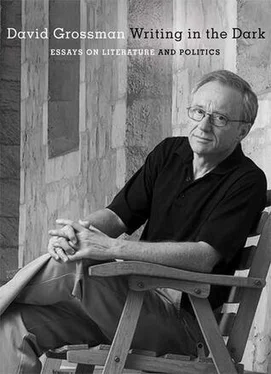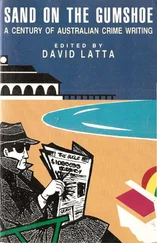I do not mean to minimize all the enormous accomplishments Israel has made. Despite an almost impossible starting point, and while fighting an endless war for existence, Israel has created a democratic regime, absorbed millions of immigrants, developed a culture, renewed a language, produced some of the most advanced agriculture in the world, established one of the strongest militaries in the world (and in a world of war, and in light of the fact that throughout most of history the Jewish people had no defense force, even a military is a source of pride), and become a leader in information technology. In short, a country with huge achievements, and more than that — huge potential, which has not yet been fully realized, partly because of the reasons I am discussing here today.
To elaborate further on the question of feeling at home , I believe that Israelis’ confidence in the definition of “home,” and in fact in the definition of their own national identity as Israelis, will be far greater after withdrawing from the Occupied Territories and separating from the occupied Palestinian people. I would like to clarify that I do not view the Occupation as the main reason for the Arab states’ hostility toward Israel. This hostility existed before the 1967 war, when the territories that are the subject of the conflict today were occupied, and even if the Occupation ends, I do not believe the conflict will be over quickly. But ending the Occupation may begin to unravel this knot of hostility and gradually diminish the flames of historical, national, and religious enmity toward Israel, consequently disentangling some of the imbroglios within Israeli society.
I think the severe rift in Israeli society today results partly from the fact that in the minds of most Jews in Israel, the Occupied Territories do not correspond, intellectually or emotionally, to the borders of Israeli identity. Certainly these territories are part of a religious Jew’s identity because they were included in God’s promise to Abraham. The Cave of Machpelah, where the biblical forefathers are buried, is in Hebron; Rachel’s tomb is in Bethlehem; the Ark of the Covenant was in Shiloh; and on the fields of Bethlehem, Joseph tended his father Jacob’s flock. Still it seems that the “flare” of Israeli identity, and of the authentic sense of home , for most Israelis, reaches as far as the Green Line and not beyond it. There is straightforward evidence of this: The governments of Israel have showered hundreds of millions of dollars on settlements and settlers in the past decades. What is known as the “settlement enterprise” is the largest and most wasteful national project Israel has undertaken since its inception. A massive mechanism of propaganda, enticement, and persuasion — ideological, religious, and national — was launched by all the governments of Israel, left and right, to impel Israelis to move to the Occupied Territories en masse. Scandalously excessive financial incentives were offered. But still, after almost forty years, fewer than 250,000 Israelis live in the settlements, and the vast majority of them are children who were born there. In other words, the settler population is approximately the size of one midsize city in Israel.
Surveys and polls taken regularly over the last eleven years, since the Oslo accords, show that some 70 percent of Israelis accept the need to partition the country into two states. They may not be enthusiastic about it, but they understand that there is no other choice. Moreover, every reasonable Israeli understands that the approval of Ariel Sharon’s “disengagement” plan in the Knesset last October was tantamount to the right wing’s admitting the failure of their ideology, which held that it was possible to control all areas of the biblical “Land of Israel.” And so I say once again that the “flare” of Israeli identity today, among the majority of Israelis, reaches as far as the Green Line and no farther. Beyond this line, the nature of the blaze changes: it either cools and melts away indifferently, alienated from what is occurring there, or becomes an exaggerated frenzy, among the settlers and the various messianic Jews.
In other words, an absurd and destructive state has emerged whereby a vast share of Israel’s national energies, financial and emotional and human assets, and political and national enthusiasm have been invested by the state’s official bodies, for almost four decades, in a territory that most Israelis do not feel belongs to them in any full, natural, or harmonious sense.
I would like to hope that relinquishing the Territories and ending the Occupation, with all these entail, will restore most Israelis to the authentic emotions of their identity. Then, for the first time in years, perhaps since the beginning of political Zionism, since the various borders were drawn for the soon-to-be state and then for the State of Israel, there will be an overlap between the geographical borders and the borders of identity.
This feeling is extremely elusive, and perhaps I find it difficult to put into words because it is one I have never experienced and can only dream of. It is the way a nation can feel itself, feel its identity, like a healthy body that maintains an emotional, “neural” connection to all its parts, all its areas, all its borders, after being released from the difficult conflicts, the dilemmas, and the struggles that related to its different limbs and organs, struggles that made its life such a misery that they threatened its very existence.
There is also the immense relief we will feel once we are released from the state of occupation itself. I believe that even most of the Israelis who wish to control “Greater Israel” do not want to be occupiers . They want the land, but they do not want the state of occupation, certainly not the contact with the occupied people, which arouses in any normal person — even one with extreme opinions — a sense of injustice and guilt. I have no doubt that most Israelis, even if their political views align them with the center or right, are aware of the moral dilemmas posed by the Occupation. Even if they justify the Occupation with sophisticated arguments, even if they efficiently sweep it under the rug of their awareness, they still feel the unease of the moral dilemma. They live in a continued state of conflict, not only with their enemy but also with themselves and their own values.
Because somewhere deep inside, every person knows when he is committing or colluding with an injustice. Somewhere deep in the heart of any “reasonable person” of sound mind, there is a place where he cannot delude himself regarding his acts and their implications. The burden created by the injustice — even if it is repressed — is there, and it has effects and it has a price. And what a relief, what a feeling of repair — of tikkun , in its deepest spiritual sense — there must be in a release from the state of occupation and from the open and hidden conflicts it engenders.
Perhaps it is pertinent to recall some of the disruptions not often mentioned when discussing the price Israel pays in its current state of occupation, with no peace and no hope for peace. There is a huge sense of missed opportunity, which is becoming increasingly widespread among those for whom Israel was a dream, those who had hoped to build a moral and just society, a society with a humanistic, spiritual vision, a society that would manage to integrate modern life with the ethics of the prophets and the finest Jewish values. I should also mention the disappointment with the fact that we, the Jews, who have always regarded power with suspicion, have become intoxicated with power ever since it was given us. Intoxicated with power and with authority, and afflicted with all the diseases that limitless power has brought to nations far stronger and more stable than Israel. Unlimited power brings unlimited authority and a virtually unhindered temptation to hurt the helpless, to exploit them economically, to humiliate them culturally, and to scorn them personally.
Читать дальше












